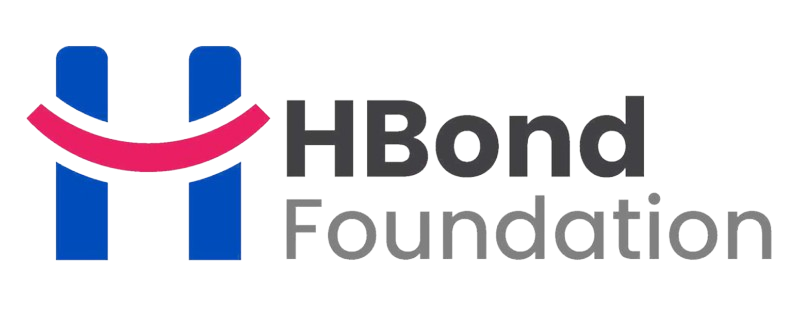Rao, S1
1Corresponding Author: Sohail Rao, MD, MA, DPhil. HBond Foundation, 6819 Camp Bullis Road, San
Antonio, Texas 78256, USA. E-mail: srao@hbond.org
INTRODUCTION:
Education plays a fundamental role in shaping a nation’s future, particularly when it comes to ensuring equitable access to higher education. Programs like Gaining Early Awareness and Readiness for Undergraduate Programs (GEAR UP) have been instrumental in supporting low-income, first-generation students by providing academic enrichment, mentoring, and financial literacy resources. Established in 1998, GEAR UP is a federally funded program administered by the U.S. Department of Education, aimed at increasing college readiness and success for students from disadvantaged backgrounds (U.S. Department of Education, 2022).
However, recent policy discussions surrounding the potential closure of the U.S. Department of Education have raised concerns about the future of programs like GEAR UP. If federal funding is

discontinued, states like Texas may have to take on additional financial and administrative responsibilities to sustain these initiatives. During my tenure at DHR Health Institute for Research & Development and in collaboration with Region 1 ESC, my valued colleagues and I established the South Texas Academy for Education & Training in Research, which
has impacted the lives of over 3,000 elementary, middle, and high school students, teachers, and parents. Mental Health Matters, Junior Clinical Research Internship (JCRI©), Leaders in the Advancement of Science, Education, & Research (LASER©) are just few of the numerous programs that were successfully implemented and continue to transform the lives of those who participate.
Programs like this, alongside GEAR UP, have demonstrated measurable success in increasing college enrollment, STEM engagement, and career readiness. This article explores the value of GEAR UP, the potential consequences of dismantling the U.S. Department of Education, and whether states like Texas would assume additional responsibilities to sustain these programs.
METHODS:
This study employs literature review and policy analysis approach, drawing from:
- Federal education reports
- State policy documents
- Peer-reviewed research on educational access and student success
The research examines the effectiveness of GEAR UP through student outcome data, program evaluations, and comparative policy frameworks (National Center for Education Statistics, 2021). Furthermore, state-level education funding trends are evaluated to assess the likelihood of Texas and other states absorbing federally funded programs if national support is withdrawn (Texas Higher Education Coordinating Board, 2023).
RESULTS:
The Value of GEAR UP
GEAR UP has been pivotal in closing achievement gaps, particularly in low-income and underrepresented communities. The program provides:
- Tutoring and mentoring services
- Financial aid awareness and college application assistance
- Summer academic programs and STEM initiatives
- Career exploration and readiness activities
Studies show that students enrolled in GEAR UP programs have higher high school graduation rates, increased college enrollment, and improved academic performance compared to peers without access to such resources (Institute of Education Sciences, 2021).
In Texas, GEAR UP has expanded college preparatory services, ensuring that first-generation students receive guidance in financial literacy, standardized test preparation, and career development (Texas Education Agency, 2023).
Consequences of Eliminating the U.S. Department of Education
If the U.S. Department of Education were to be dissolved, federal funding for GEAR UP and similar programs would cease. This could result in:
- Increased educational disparities, particularly in low-income and rural communities
- Reduced college enrollment rates, as fewer students would receive structured support
- Loss of research and innovation initiatives, which rely on federal grants
Programs like GEAR UP are particularly vulnerable, as they rely heavily on federal funding. Without intervention, thousands of students in Texas alone could lose access to essential college readiness programs (Texas Higher Education Coordinating Board, 2023).
Would Texas Sustain These Programs?
While Texas has demonstrated a long-standing commitment to K-12 education and workforce development, state budgets are already stretched. The Texas Higher Education Coordinating Board and local school districts could attempt to fill the funding gap, but without federal support, scaling these programs would be challenging.
Possible Solutions:
- State-Funded College Readiness Grants – Texas could allocate dedicated funding to continue existing GEAR UP initiatives (Texas Education Agency, 2023).
- Public-Private Partnerships – Collaborating with local industries, universities, and non-profits to provide financial and logistical support
- Integration with State Education Programs – Incorporating GEAR UP services into existing Texas Education Agency (TEA) initiatives (Texas Higher Education Coordinating Board, 2023).
Texas has historically taken the lead in education reform and workforce training, and its commitment to STEM education, research, and career readiness suggests it may absorb some of the responsibilities currently shouldered by federal agencies. However, without strategic funding mechanisms, many students—particularly those in rural and economically disadvantaged areas—would face setbacks in their college and career trajectories.
CONCLUSION:
GEAR UP and similar college readiness programs have played a transformative role in bridging the educational gap for low-income, first-generation students, providing them with the necessary tools, mentorship, and academic support to pursue higher education. These initiatives have demonstrated significant success in increasing college enrollment, retention, and career preparedness, particularly for students from underserved communities who may lack the resources and guidance to navigate the complexities of higher education.
However, the potential closure of the U.S. Department of Education poses a substantial threat to these programs. Without federal oversight and funding, many states may struggle to sustain such large-scale initiatives, leading to an increase in educational disparities, a decline in college readiness, and a widening opportunity gap for students who rely on these critical resources. This could have long-term economic and societal consequences, as higher education plays a vital role in workforce development, economic mobility, and community prosperity.
While states like Texas have historically invested in education and workforce training, absorbing the financial and administrative responsibilities of GEAR UP and similar programs would require a strategic and multifaceted approach. This would involve:
- Legislative commitment to ensuring long-term funding and policy support for college readiness programs.
- Innovative funding models, including state grants, corporate sponsorships, and public-private partnerships.
- Collaboration between educational institutions, private sector stakeholders, and nonprofit organizations to maintain the program’s reach and effectiveness.
- Integration of GEAR UP services into existing state-run education initiatives, ensuring continued access to mentorship, tutoring, and financial aid guidance.
The future of educational equity and workforce development hinges on a sustained commitment to these programs. Without continued investment and proactive policy solutions, thousands of students—particularly those from marginalized communities—could face significant barriers to higher education and career advancement. In an era where education is increasingly linked to economic competitiveness, ensuring the survival and expansion of college readiness initiatives is not just a moral imperative but a strategic necessity for the nation’s long-term prosperity.
Ultimately, the question is not whether states like Texas can sustain these programs but whether they will recognize the urgency of doing so. Policymakers, educators, and community leaders must work collectively to safeguard the future of college access, workforce readiness, and social mobility for generations to come.

